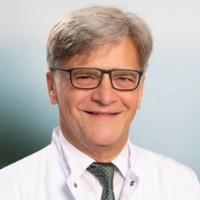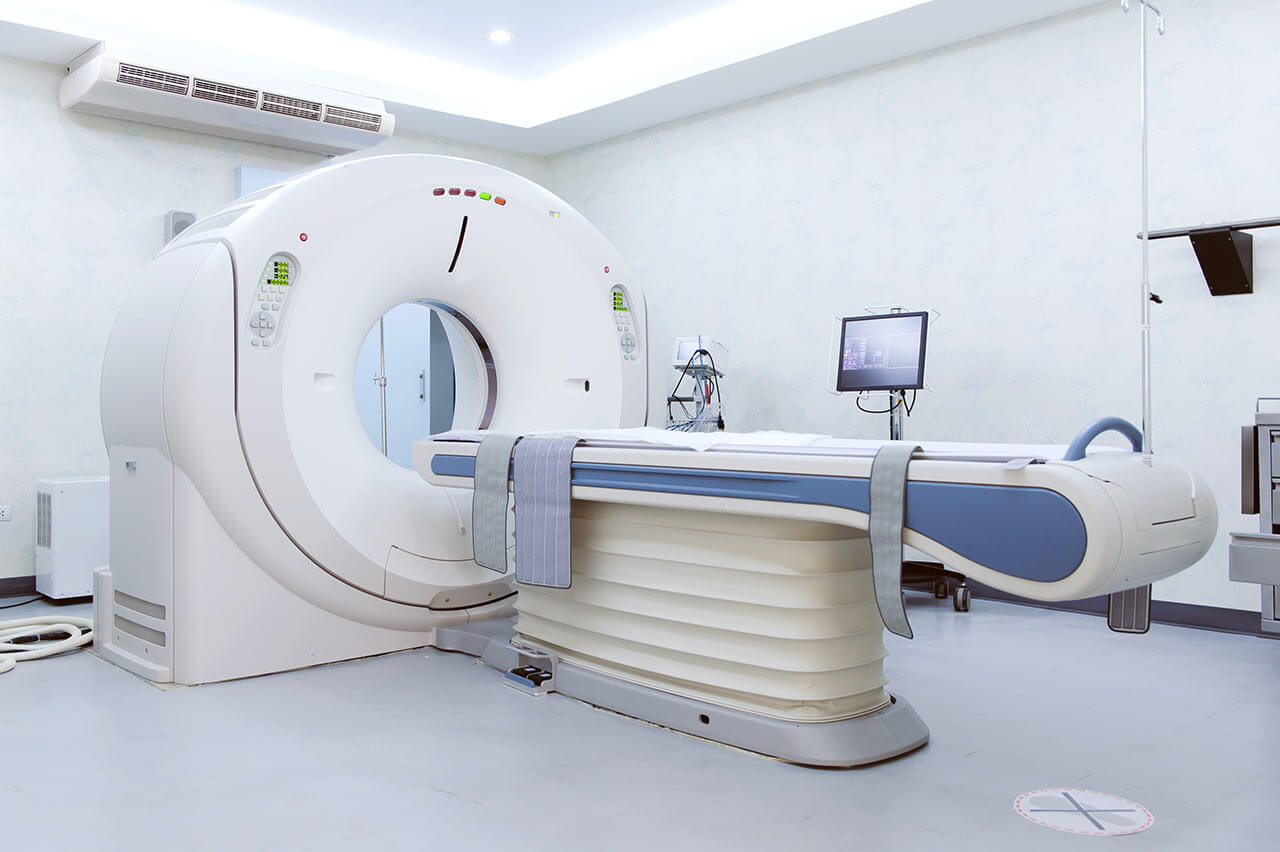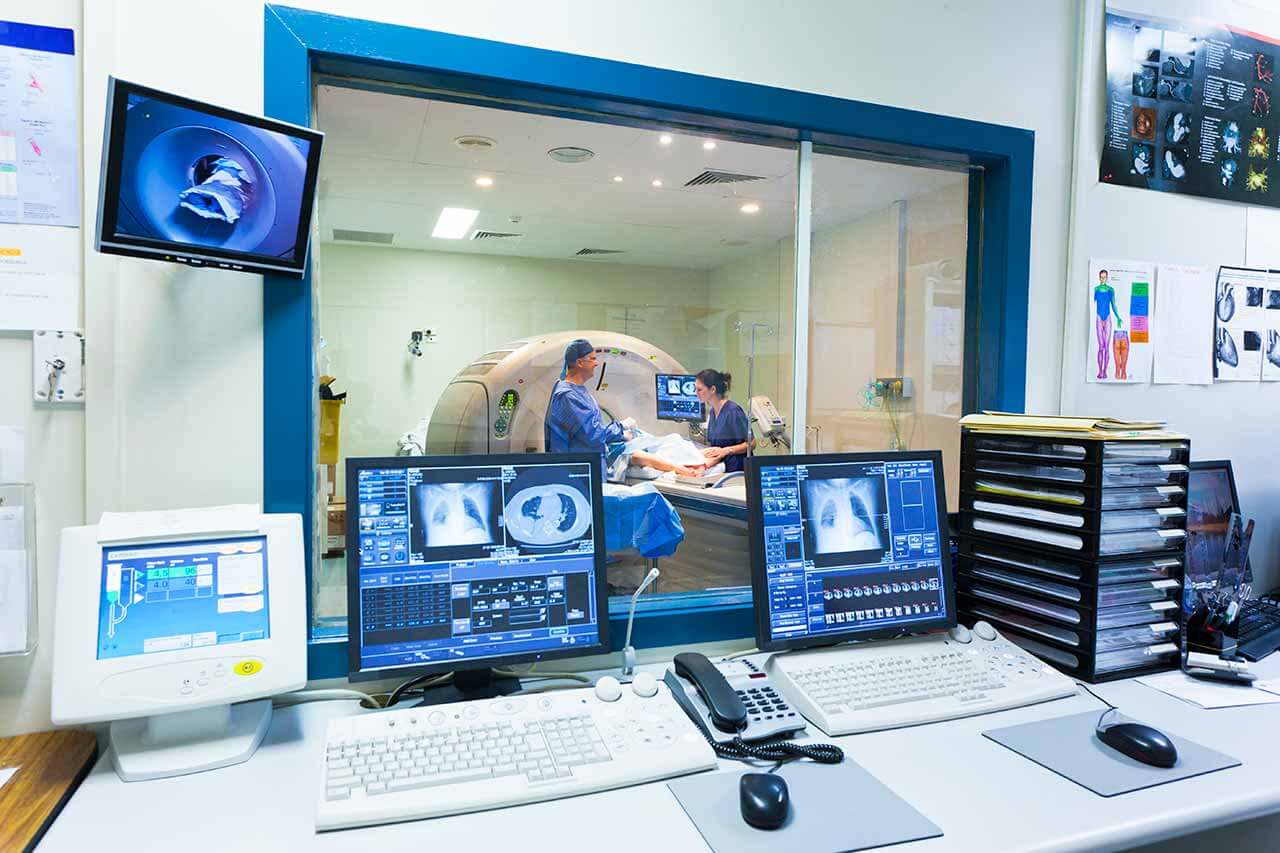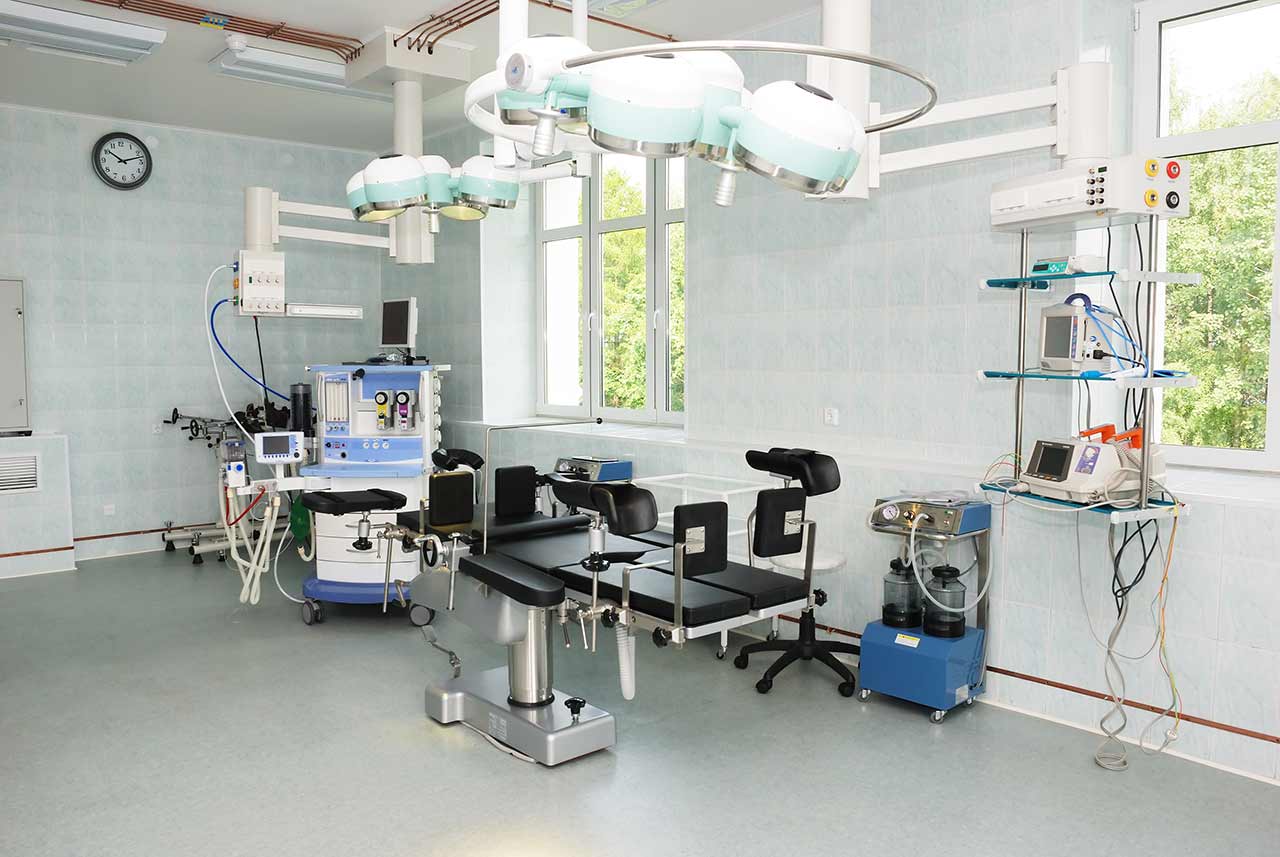
About the Department of Thoracic Surgery at Specialized Pulmonary Clinic Asklepios Munich-Gauting
The Department of Thoracic Surgery at the Specialized Pulmonary Clinic Asklepios Munich-Gauting offers top-class surgical treatment for the full range of chest diseases. The department has the status of one of the largest medical facilities of this kind in Germany. In addition, the department is the country's leading center for surgery to treat lung cancer, which is one of the most common and life-threatening types of oncological diseases. Patients are treated in two high-tech operating rooms, where all hygiene and safety standards are strictly met. Video-assisted thoracoscopic surgical techniques are widely used in clinical practice, which contributes to the rapid recovery of patients in the postoperative period. At the same time, the effectiveness of such operations is in no way inferior to classical open surgical techniques. The department annually performs more than 1,000 surgical interventions of varying complexity on the chest organs. The department's special therapeutic offer is hyperthermic intrathoracic chemotherapy (HITHOC), which is used for treating pleural mesothelioma.
The department is headed by Prof. Dr. med. Rudolf Hatz. The specialist has more than 35 years of successful clinical practice. He is a Fellow of the American College of Surgeons (FACS) and many German professional societies. Prof. Hatz has also repeatedly won prestigious prizes and awards, confirming his high competence in the field of thoracic surgery.
Today, lung cancer is one of the most common oncological diseases worldwide. Malignant lung tumors often do not cause any symptoms, so a person may not even be aware of the presence of the disease until it reaches an advanced stage. Chronic cough, hemoptysis, shortness of breath, and chest pain are reasons for a chest X-ray to be performed. If the results of this examination are unsatisfactory, chest computed tomography (CT), bronchoscopy, biopsy, and other tests will be performed additionally. During the diagnostics, it is important for the department's surgeons to determine the exact type of malignant tumor (small or non-small cell lung cancer), since the treatment tactics for these cancers are fundamentally different. Most small-cell lung cancers are treated with chemotherapy or chemoradiation therapy, while for non-small cell lung cancers, surgery is mostly preferred. At the preparation stage for surgery, the department's specialists perform CT scans of the head and upper abdomen, skeletal scintigraphy, and PET-CT scans (if clinically indicated) to detect metastases. In addition, a patient undergoes pulmonary and cardiac function tests, the results of which also play an important role in deciding whether to perform the operation.
In many cases, the department's thoracic surgeons manage to perform minimally invasive video-assisted thoracoscopic surgery without a thoracotomy. When performing such interventions, it is enough for surgeons to make one or several small incisions through which a thoracoscope with a camera and miniature instruments are delivered to the tumor. The images of the surgical field are continuously transmitted on a large screen with multiple zooming, which ensures the highest accuracy of surgical procedures. Following video-assisted thoracoscopic surgery, patients experience almost no pain and recover in the shortest possible time. Such interventions provide a good aesthetic result, as they leave minor scars.
The department often admits patients with pleural mesothelioma (pleural cancer). In almost all cases, a malignant neoplasm develops in the pleura due to asbestos exposure. Typical symptoms of pleural mesothelioma are difficulty breathing and chest pain. Whenever possible, the department's thoracic surgeons prefer a pleurectomy (a surgical procedure to partially or totally remove the pleura) followed by hyperthermic intrathoracic chemotherapy (HITHOC). The essence of HITHOC is as follows: a solution of chemotherapy agents heated to a high temperature is injected into the chest cavity, and the drugs easily penetrate into the remaining tumor foci due to the heating and destroy them. It should be noted that hyperthermic intrathoracic chemotherapy is a rather complicated procedure, and therefore it is carried out only in advanced German medical centers. A pleurectomy combined with HITHOC ensures relief of symptoms and significantly prolongs the life expectancy of patients, but complete cure of pleural mesothelioma by these methods rarely occurs. A complete cure for cancer usually requires radical surgery, namely an extrapleural pleuropneumonectomy. During this operation, the department's surgeons totally remove the lung, pericardium, diaphragm, and pleura, which is followed by pericardial and diaphragmatic plastic repair. Extrapleural pleuropneumonectomy is one of the most complex operations in thoracic surgery. Irradiation is usually indicated after pleurectomy and extrapleural pleuropneumonectomy.
The department's doctors have vast experience in helping patients with spontaneous pneumothorax. The pathology is characterized by the penetration of air into the pleural cavity due to an impairment of the pleural integrity. If left untreated, spontaneous pneumothorax may lead to severe complications such as pleurisy, pleural empyema, emphysema, and acute respiratory failure. The main diagnostic method for suspected pneumothorax is an X-ray scan. In some cases, computed tomography may also be performed. The treatment tactics are determined individually. The first-line therapy for spontaneous pneumothorax is most often drainage, when a tube is inserted into the pleural cavity through a puncture in the chest wall. After placing the drainage tube, it is fixed with a small suture and connected to the drainage system, after which the air begins to leave the pleural cavity. The treatment process takes about 5 days. However, in 30% of cases, patients have recurrent spontaneous pneumothorax. In some cases, even in the case of primary spontaneous pneumothorax, the department's doctors prefer the surgical treatment option since the risk of recurrence after surgery does not exceed 5%. Surgery for pneumothorax is performed using low-traumatic video-assisted thoracoscopic techniques.
The department's main clinical activities include:
- Video-assisted thoracoscopic surgery (VATS)
- Surgery for pleurisy
- Surgery for lung, mediastinal, and pleural tumors
- Lung lobe resection for lung cancer
- Surgery for spontaneous pneumothorax
- Surgery for pleural empyema
- Lung volume reduction surgery
- Surgery for hyperhidrosis
- Nuss procedure to repair pectus excavatum
- Pleurectomy combined with hyperthermic intrathoracic chemotherapy (HITHOC) and extrapleural pleuropneumonectomy for malignant pleural mesothelioma
- Surgical treatment of tracheal stenosis and tracheal cancer
- Surgical removal of lung metastases, including laser surgery
- Thoracotomy (open surgery with a chest opening)
- Other surgical services
Curriculum vitae
Higher Education
- 1985 Medical Studies at Ludwig Maximilian University of Munich.
- 1983 Summer Semester at the Faculty of Medicine at Stanford University, USA.
Professional Сareer
- 1986 Assistant Physician, Department of Surgery, University Hospital of Ludwig Maximilian University of Munich, Campus Grosshadern.
- 1987 Research Fellow at the Massachusetts General Hospital, Harvard Medical School.
- 1988 Assistant Physician, Department of Surgery at the University Hospital of Ludwig Maximilian University of Munich, Campus Grosshadern.
- 1998 Venia Legendi, PD, and Senior Physician.
- 1998 Habilitation.
- 2001 Specialization in Thoracic and Abdominal Surgery.
- 2002 Qualification Certificate: Quality Management, Bavarian State Medical Association.
- 2003 Head of the Section of Thoracic Surgery with responsibility for advanced training, Bavarian State Medical Association.
- 2004 Managing Senior Physician, Department of Surgery, University Hospital of Ludwig Maximilian University of Munich, Campus Grosshadern.
- 2005 Professorship at Ludwig Maximilian University of Munich.
- 2006 Head of the Department of Thoracic Surgery at the Specialized Pulmonary Clinic Asklepios Munich-Gauting.
- 2007 Responsible for advanced training courses and Medical Consultant in Thoracic Surgery, Bavarian State Medical Association.
- 2008 Full University Professorship (W2) for Thoracic Surgery.
Memberships in Professional Medical Societies
- 2015 Member of the American Surgical Association as Fellow of the American College of Surgeons (FACS).
- Association of Bavarian Surgeons.
- Professional Association of German Surgeons.
- Surgical Working Group on Endoscopy of the German Society of Surgery.
- Surgical Working Group on Wound Treatment of the German Society of Surgery.
- German Society of Surgery.
- German Society of Thoracic Surgery.
- German Society for Wound Healing, Secretary, and since 1996 till 1998, Member of the Advisory Council.
- International Society for Heart and Lung Transplantation.
- Head of the Munich Lung Transplant Group.
- Project Group "Gastrointestinal infections" of the German Society for Hygiene and Microbiology.
- Project Member of the Cancer Center Munich.
Scientific Awards, Prizes and Honors
- 1993 Prize from the European Research Group on Gastroduodenal Pathologies, Brussels, Belgium.
- 1994 Prize from the European Research Group on Gastroduodenal Pathologies, Barcelona, Spain.
- 1998 and 2000 Prize from the European Research Group on Immunology and Pathogenesis in Mucosal Infectious Lesions, Elsinore, Denmark.
- 2001 Award for Video on Minimally Invasive Surgery from the German Society of Surgery, Munich.
- 2002 Rudolf Schindler Prize, Society for Endoscopy and Imaging, Munich.
- 2007 Georg Heberer Prize.
- 2007 Walter Schulz Prize.
Photo of the doctor: (c) Asklepios Fachkliniken München-Gauting




